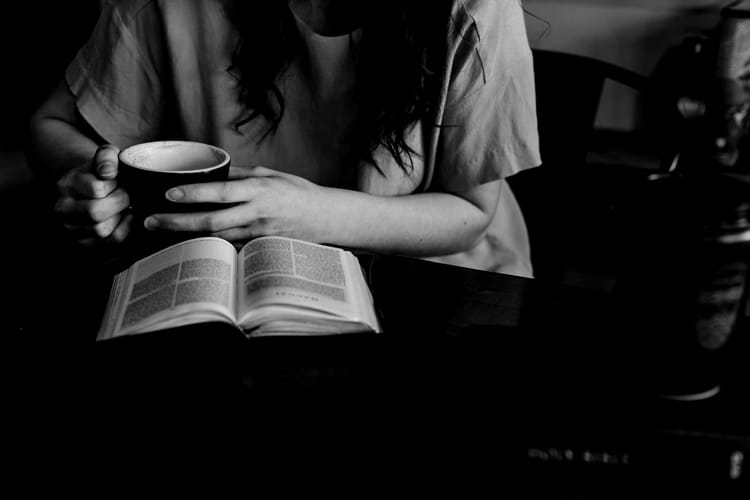Guilt in the time of genocide

My personal struggles feel trivial as children are dying in thousands. I feel guilty for suffering from my personal circumstances as I witness multiple genocides unfolding. I do not want to be bogged down by my life, yet I find myself deeply challenged. I practice gratitude, and thanksgiving but it does not seem to be helping me.
In a world fraught with violence, injustice, and widespread suffering, it's easy to feel overwhelmed and diminished by the scale of global tragedies. As we scroll through newsfeeds detailing catastrophic events far from our reach, the weight of the world can seem unbearably heavy. This juxtaposition between global crises and personal struggles brings about a profound inner conflict: How do we justify our pain when others seem to suffer more?
As I navigate my challenges with finances, health, and work, I too find myself trying to minimize and deny how my circumstances are impacting me. I tell myself, "Kids are dying, hospitals are being bombed, and you are worried about this silly thing sitting in the comfort of your home." The judgment is scathing.
I know I am not the only one who experiences this.
The nature of the mind is universal and common to us all. The mind's main goal is to help us survive, avoid catastrophe and pain, and help us be happy. It tends to analyze everything to understand and cope. There is constant sorting happening within us. We arrange things in hierarchies and binaries. We create concepts of what these distinct points/positions mean. We establish a sense of order that helps us find our place in the chaos. The intention is noble, to make sense, but in reality it further disconnects and deludes us.
Our mind thinks of suffering and privilege as being mutually exclusive. Then we rank suffering - there is someone on top and someone on the bottom. The more privilege one has, we imagine them to be lower on the suffering scale as a result. Aka, me. The writer. And you, my reader. Since the mind's basic goal is to keep us safe, you and I unconsciously equate safety with a lack of suffering.
I follow a wonderful activist, Mina Sharif on Instagram. She is an Afghan Canadian. A while back she had posted about the mental health of refugees being fragile even after moving to relative physical safety. They are often looked at as ungrateful when they are depressed or have further needs which are more than food, clothing, and shelter.
As an immigrant, I chose to move to a different country, yet I experience(d) an inexplicable melancholy at being separated from my roots. I have found it hard to make Canada home - because home is more than a brick-mortar building, a car, and an opportunity to earn more. When I express discontent, I am often told, "Go back to where you came from!"
The culture we live in reinforces the faulty equivalence between privilege, power/clout, and happiness. Capitalism instills a sense of competition within us constantly. It makes us compare ourselves to others incessantly. It thrives on making us feel bad about ourselves while selling an illusion of happiness based on material things. When we feel bad, we work harder. When we have material things, we think we should be happy. The biggest flaw is that safety and basic human rights are seen as privileges under capitalism. We are told that we have to earn these. When we have them, we should pipe down and be quiet...allow it to continue unchecked.
The First Noble Truth teaches us that suffering is a part of life. It is pervasive and inevitable. It is universal. It touches everyone. We are connected in our common humanity. This is not just some philosophical b.s., but a scientific fact. Each human body is made of billions and billions of atoms that come from something outside it. Our body is born of someone else, made of other people, and we consume food, water, and sunshine that are outside of us. Essentially, we exist because other things exist...the Earth exists...the solar system exists. Vietnamese Zen Master Thich Nhat Hanh called this, "Interbeing." Our safety, happiness, and suffering are all intertwined.
We have to keep reminding ourselves that collective liberation includes our self. When we bypass our challenges because of our privileges, we need to remind ourselves that we are not the only ones who experience those challenges. When we deny or minimize our suffering, we negate the suffering of others too!
Most importantly, many of us are responding to not just our personal suffering, but to the scale of all of it...genocide included. Inspired by the concepts of dependent origination, interbeing, and Kimberlee Crenshaw's intersectionality, I created an illustration that depicts my experience of suffering as a spiral, and as a shared continuum.

Don't get me wrong, we do have a lot of privilege, and recognizing that is important. Practicing gratitude is essential because it helps calm our subliminal programming about scarcity and want. But, we must remember that we can be safe, have relative access to resources, and simultaneously experience challenges. We have to practice a non-dual approach when looking at issues that involve morality, ethics, and values. Non-duality is the idea that multiple truths can co-exist at the same time. We can have safety and security, and still experience challenges. We can respond to challenges effectively, and we will still experience the same ones as well as new ones. Since suffering is on a continuum, our response needs to be too.
Collective liberation also means how we respond to suffering. We respond to all of it simultaneously. Our own. That of our loved ones. Our neighbors. People in our countries. Globally. And of all species. This is lived loving-kindness.
Remember, we don't suffer less, we suffer differently. We all deserve to be freed of our pain and suffering.


Member discussion